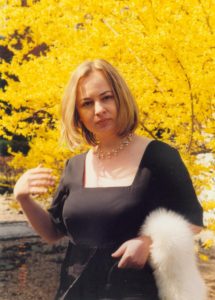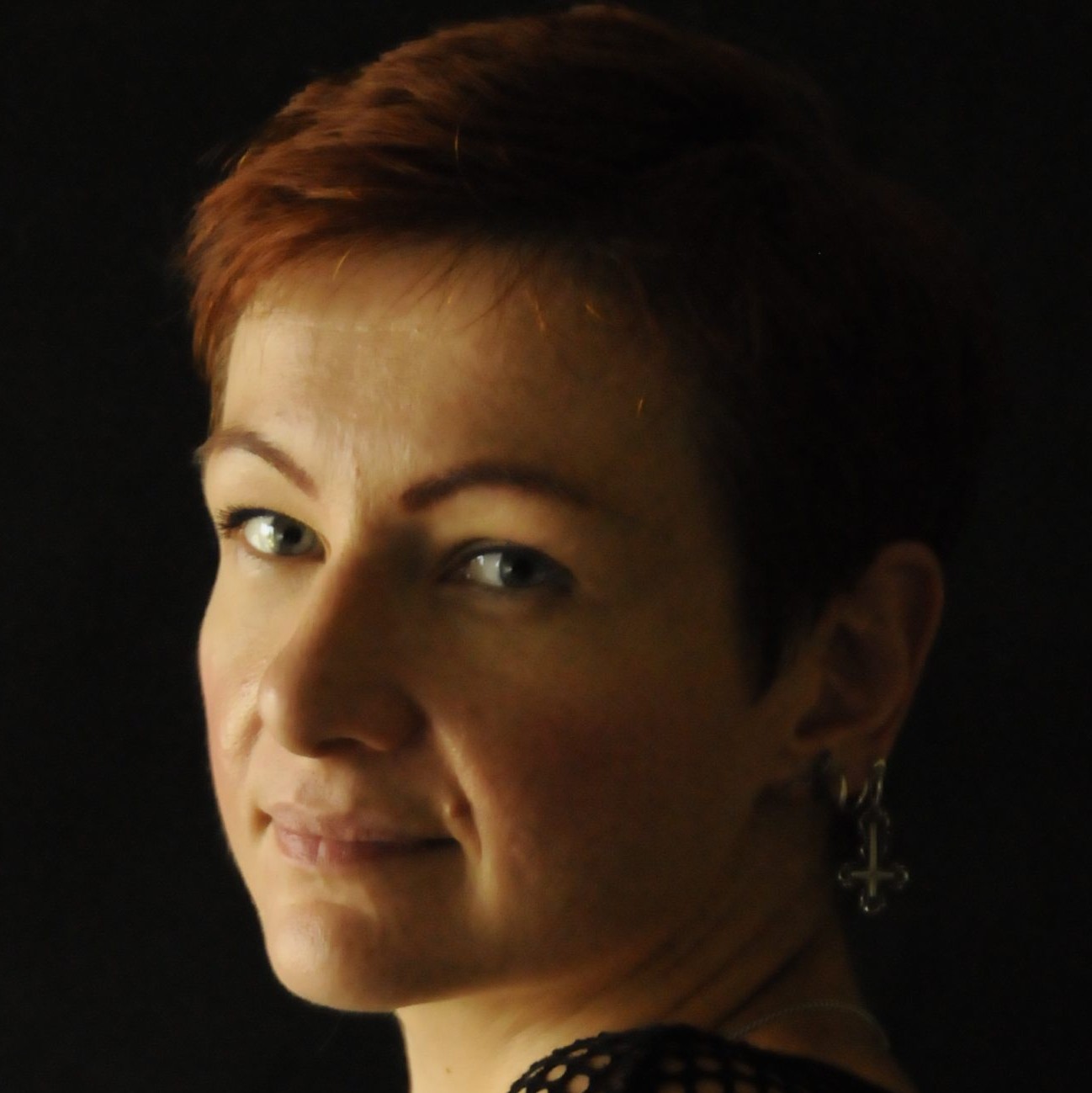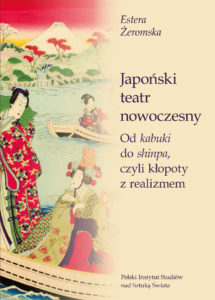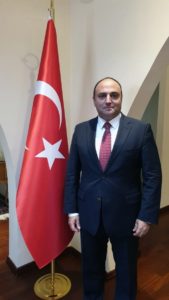TRCCS UAM zaprasza w imieniu organizatorów 13.10.2022, godz. 10.00 (Paryż), na wykład dr Marty Hanson (John Hopkins University): Grasping Heaven and Earth: The Healer’s Hand in Classical Chinese Medicine
Meeting ID: 748 9233 2866
Code:6t6YeP
TRCCS UAM zaprasza w imieniu organizatorów 13.10.2022, godz. 10.00 (Paryż), na wykład dr Marty Hanson (John Hopkins University): Grasping Heaven and Earth: The Healer’s Hand in Classical Chinese Medicine
Meeting ID: 748 9233 2866
Code:6t6YeP
TRCCS UAM w imieniu organizatorów zaprasza 1-2 listopada 2022 na konferencję z okazji 10 rocznicy założenia TRCCS w ramach National Central Library (Taiwan).
Dostęp: https://reurl.cc/3YEA9R
TRCCS UAM uprzejmie zawiadamia, że w 2022 roku Centralna Biblioteka Narodowa Tajwanu (National Central Library) przekazała Bibliotece Wydziału Neofilologii kolejnych 280 pozycji książkowych z różnych dziedzin sinologii i tajwanologii. Po skatalogowaniu będą one dostępne w bibliotece wydziałowej. Przypominamy, że poprzez komputery naszej biblioteki można również korzystać z bogatych zasobów elektronicznych NCL. Spis linków znajduje się na stronie Instytutu Orientalistyki w zakładce TRCCS.
Informujemy, że w dniu 17 października 2022 roku o g. 15.00 w budynku Collegium Novum UAM (al. Niepodległości 4; sala 25, blok B) odbędzie się publiczna obrona doktorska Pana mgr. Andrzeja Świrkowskiego, który pod kierunkiem prof. Estery Żeromskiej, napisał rozprawę pt. Japońska literatura kryminalna w latach 1923-1937.
Natomiast w dniu 19 października 2022 roku o g. 13.00 w budynku Collegium Novum UAM (al. Niepodległości 4; sala 25 blok B) odbędzie się publiczna obrona doktorska Pani mgr Moniki Lecińskiej-Ruchniewicz, absolwentki japonistyki UAM, która pod kierunkiem prof. Estery Żeromskiej napisała rozprawę pt. Świat przedstawiony w utworach Teatru Muzycznego Takarazuka.
Szanowni Studenci!
Zapraszamy na spotkanie z okazji Dnia Studenta I roku w dniu 4 października 2022 r. o godz. 12.00, które odbędzie się w Domu Studenckim Jowita przy ul. Zwierzynieckiej 7 w Poznaniu w sali konferencyjnej (parter, na lewo od wejścia głównego).
Zapisy na WF dla studentów I roku rozpoczynają się 27 września br. Na te zajęcia studenci japonistyki, sinologii, filologii arabskiej i turkologii mają zarezerwowany w planie zajęć czas w poniedziałki w godz. 8:00-13:00.
Dodatkowo w dniu 26 września odbędzie się spotkanie w oparciu o aplikacje zdalną (Microsoft Teams) na temat organizacji sportu na UAM (informacje niezwiązane z zapisami na WF.). Link znajduje się w tym dokumencie.
Informacja dotyczy wszystkich studentów I roku wszystkich trybów oraz stopni (licencjat, studia magisterskie) studiów realizowanych w Instytucie Orientalistyki: filologia arabska, japonistyka, sinologia oraz turkologia.
 W dniu 9 września 2022 r. w wieku pięćdziesięciu lat umarła Pani dr Monika Tsuda (z d. Szychulska), która w latach od 1.10.2003 roku do 30.09.2012 roku pracowała w Zakładzie Japonistyki na stanowisku adiunkta. Niektórzy z nas stale z Nią współpracowali.
W dniu 9 września 2022 r. w wieku pięćdziesięciu lat umarła Pani dr Monika Tsuda (z d. Szychulska), która w latach od 1.10.2003 roku do 30.09.2012 roku pracowała w Zakładzie Japonistyki na stanowisku adiunkta. Niektórzy z nas stale z Nią współpracowali.
Pani dr Tsuda była utalentowaną japonistką specjalizującą się we współczesnej literaturze japońskiej. Jej ulubionym pisarzem był Natsume Sōseki (1867-1916), któremu poświęciła swoje prace naukowe. Pozostawiła również tłumaczenia jego utworów. Ostatnia publikacja ukazała się dwa miesiące temu.
Wszystkich pasjonatów regionu i nazw własnych serdecznie zapraszamy na drugą edycję cyklicznego popularnonaukowego wydarzenia onomastycznego „Wielkopolska nazwami opisana”, gdzie opowiadamy o nazwach Poznania i Wielkopolski, ich genezie, specyfice, historii i dniu dzisiejszym. Z powodu pandemii poprzednia edycja odbyła się online, na tę zapraszamy już w formie tradycyjnej, do Pałacu Działyńskich na Starym Rynku w Poznaniu. Na wszystkie prelekcje wstęp wolny, w razie pytań osobą do kontaktu jest dr hab. Justyna Walkowiak z Zakładu Polityki Językowej i Badań nad Mniejszościami: justwalk(at)amu.edu.pl.
Szanowni Państwo

W dniu 4 sierpnia 2022 r. zmarła śmiercią tragiczną dr Agnieszka Paterska-Kubacka, nasza serdeczna koleżanka z sinologii, a ostatnio zatrudniona w Zakładzie Polityki Językowej i Badań nad Mniejszościami. W naszej pamięci pozostanie Ona jako osoba wielkiej życzliwości, jako znakomity naukowiec i pedagog.
Łączymy się w bólu z jej Rodziną i Przyjaciółmi.
Pogrzeb odbędzie się we wtorek, 23 sierpnia, o godz. 12:45 na cmentarzu Miłostowo, wejście od ul. Warszawskiej.
Estera Żeromska i Tomasz Wicherkiewicz
Z przyjemnością informujemy, iż ukazała się właśnie najnowsza książka prof. dr hab. Estery Żeromskiej – Japoński teatr nowoczesny. Od kabuki do shinpa, czyli kłopoty z realizmem.

Tom ten jest kontynuacją trzech wcześniejszych książek: Maska na japońskiej scenie. Od pradziejów do powstania teatru no. Historia japońskiej maski i związanej z nią tradycji widowiskowej oraz Japoński teatr klasyczny. Korzenie i metamorfozy. T. 1: No, kyo’gen. T. 2: Kabuki, bunraku, a zarazem rozbudowanym wprowadzeniem do kolejnego tomu pt. Japoński teatr nowoczesny. Shinpa, shingeki.
W książce przedstawiono szereg skonfrontowanych z rozumowaniem zachodnim, rozproszonych dotychczas w wypowiedziach myślicieli, twórców i badaczy różnych epok, refleksji o wybranych aspektach i przejawach realizmu w japońskim teatrze, głównie klasycznym (ze szczególnym uwzględnieniem no i kabuki), a także w integralnie powiązanych z nim literaturze i sztuce. Koncentruje się na odmienności wybranych japońskich i zachodnich koncepcji realizmu oraz wynikających z nich sposobów wyrażania prawdy o świecie. Zwraca zarazem uwagę na wspólnotę uczuć i myśli odległych kulturowo twórców dzieł sztuki, literatury, teatru, a także uświadamia charakter i rozmiar problemów pojawiających się w zapoczątkowanym w drugiej połowie XIX w. procesie adaptacji zachodniej tradycji teatralnej w Japonii, z którymi borykali się twórcy teatru nowoczesnego shinpa i shingeki.
